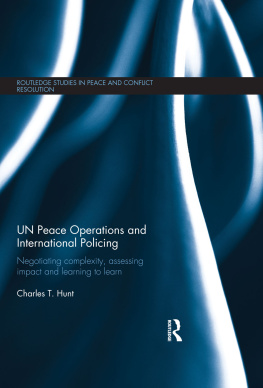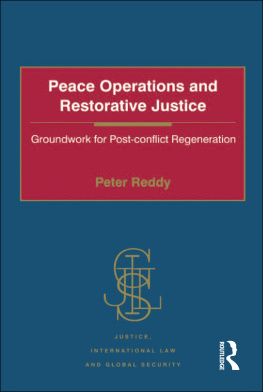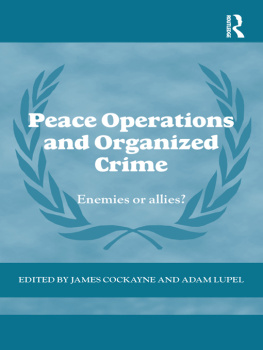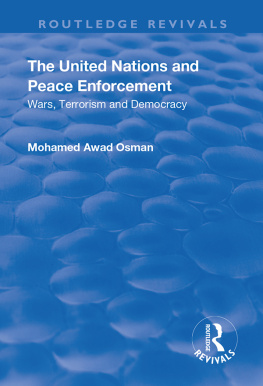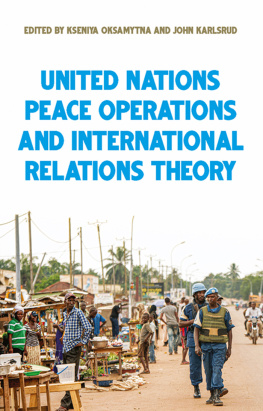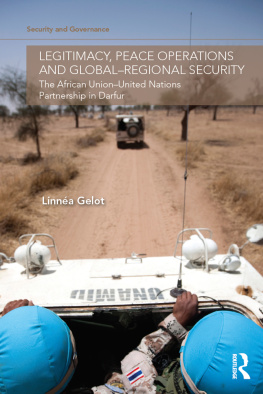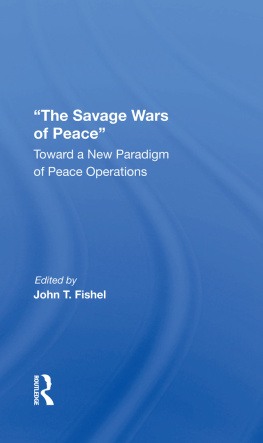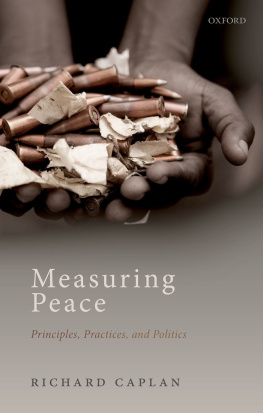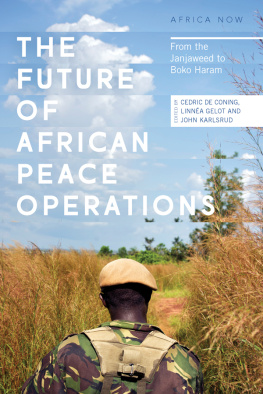To some, UN Police are the most useful tool in post conflict situations. Others argue that the diverse, disparate nature of UN Police components in peacekeeping operations makes them unfit for purpose. Hunts methodological approach to monitoring and evaluating UN Police performance has the real potential to assist in developing a clearer understanding of the effectiveness of international policing and in identifying areas that require strengthening and support, or even a total rethink.
Andrew Hughes, APM, Commissioner (retd.) Police Adviser to the UN and Director of the Police Division, DPKO, 200709
Hunts innovative study tackles two key questions in contemporary peace operations: what impact do these missions have on host societies and how might they be improved? Using detailed research on the roles of civilian police in UN missions and the case of UNMIL in Liberia in particular, Hunt makes the case that the key to effective policing lies in organizational learning and that this can be facilitated by a reformed approach to monitoring and evaluation. This book offers students and practitioners of peace operations much food for thought on how to design monitoring and evaluation frameworks that capture the complexity of contemporary peace operations and their interactions with the host society.
Paul D. Williams, George Washington University, USA
Charles Hunts work is not only highly relevant for academics, it is also inspiring for programme managers and M&E practitioners questioning the limits of conventional systems and hungry for guidance on how to improve them.
Stefan Rummel-Shapiro, Senior M&E Advisor, United Nations Peace Building Support Office (UN-PBSO)
UN Peace Operations and International Policing
This book addresses the important question of how the United Nations (UN) should monitor and evaluate the impact of police in its peace operations.
UN peace operations are a vital component of international conflict management. Since the end of the Cold War one of the foremost developments has been the rise of UN policing (UNPOL). Instances of UNPOL action have increased dramatically in number and have evolved from passive observation to participation in frontline law enforcement activities. Attempts to ascertain the impact of UNPOL activities have proven inadequate.
This book seeks to redress this lacuna by investigating the ways in which the effects of peace operations and UNPOL in particular are monitored and evaluated. Furthermore, it aims to develop a framework, tested through field research in Liberia, for Monitoring and Evaluation (M&E) that enables more effective impact assessment. By enhancing the relationship between field-level M&E and organisational learning this research aims to make an important contribution to the pursuit of more professional and effective UN peace operations.
This book will be of much interest to students of peace operations, conflict management, policing, security studies and IR in general.
Charles T. Hunt is a lecturer in International Security in the School of Political Science and International Studies, University of Queensland, Australia. He is co-editor of Making Sense of Peace and Capacity-Building Operations (2010) and co-author of Forging New Conventional Wisdom Beyond International Policing (2013).
Routledge Studies in Peace and Conflict Resolution
Series Editors: Tom Woodhouse and Oliver Ramsbotham
University of Bradford
Peace and Security in the Postmodern World
The OSCE and conflict resolution
Dennis J.D. Sandole
Truth Recovery and Justice after Conflict
Managing violent pasts
Marie Breen Smyth
Peace in International Relations
Oliver P. Richmond
Social Capital and Peace-Building
Creating and resolving conflict with trust and social networks
Edited by Michaelene Cox
Business, Conflict Resolution and Peacebuilding
Contributions from the private sector to address violent conflict
Derek Sweetman
Creativity and Conflict Resolution
Alternative pathways to peace
Tatsushi Arai
Climate Change and Armed Conflict
Hot and Cold Wars
James R. Lee
Transforming Violent Conflict
Radical disagreement, dialogue and survival
Oliver Ramsbotham
Governing Ethnic Conflict
Consociation, identity and the price of peace
Andrew Finlay
Political Discourse and Conflict Resolution
Debating peace in Northern Ireland
Edited by Katy Hayward and Catherine ODonnell
Economic Assistance and Conflict Transformation
Peacebuilding in Northern Ireland
Sean Byrne
Liberal Peacebuilding and Global Governance
Beyond the metropolis
David Roberts
A Post-Liberal Peace
Oliver P. Richmond
Peace Research
Theory and practice
Peter Wallensteen
Reconciliation after Terrorism
Strategy, possibility or absurdity?
Judith Renner and Alexander Spencer
Post-War Security Transitions
Participatory peacebuilding after asymmetric conflicts
Edited by Veronique Dudouet, Hans Giessman and Katrin Planta
Rethinking Peacebuilding
The quest for just peace in the Middle East and the Western Balkans
Edited by Karin Aggestam and Annika Bjrkdahl
Violent Conflict and Peacebuilding
The continuing crisis in Darfur
Johan Brosch and Daniel Rothbart
Peacebuilding and NGOs
Statecivil society interactions
Ryerson Christie
Peace Negotiations and Time
Deadline diplomacy in territorial disputes
Marco Pinfari
History Education and Post-Conflict Reconciliation
Reconsidering joint textbook projects
Edited by Karina V. Korostelina and Simone Lssig
Conflict Resolution and Human Needs
Linking theory and Practice
Edited by Kevin Avruch and Christopher Mitchell
Human Rights Education and Peacebuilding
A comparative study
Tracey Holland and J. Paul Martin
Post-Conflict Studies
An Interdisciplinary Approach
Edited by Chip Gagnon and Keith Brown
Arab Approaches to Conflict Resolution
Mediation, negotiation and settlement of political disputes
Nahla Hamdan and Frederic S. Pearson
UN Peace Operations and International Policing
Negotiating complexity, assessing impact and learning to learn
Charles T. Hunt
Civil Resistance and Conflict Transformation
Transitions from armed to nonviolent struggle
Edited by Vronique Dudouet

